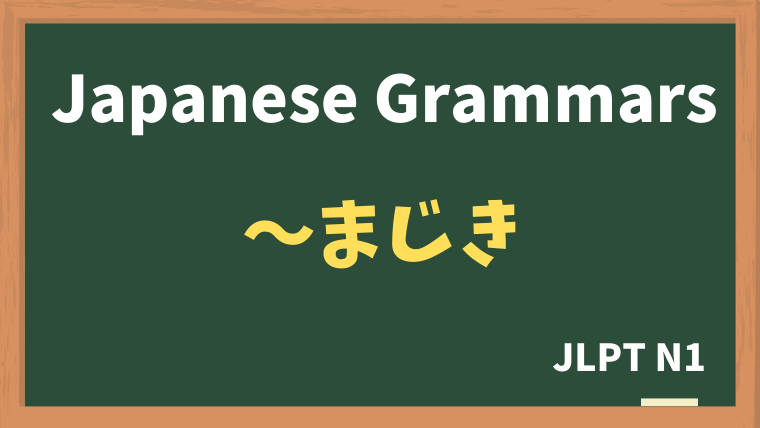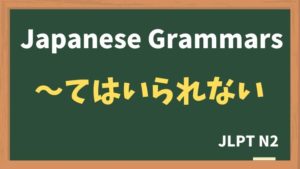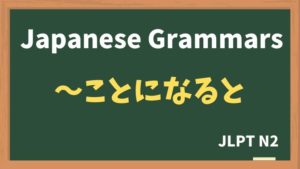
Explanation:〜まじき
fa-check-circleMeaning
"〜してはいけない / 〜べきではない"
その人の立場を考えると許されない行為や態度であると言うときに使う。
"should not be done such a person"
A formal and literary way to express something that "must not be" or "is unacceptable," especially from a moral or ethical standpoint. It is commonly used to criticize actions or behaviors that are seen as inappropriate or unworthy in a certain context, particularly in serious, professional, or ethical situations.
fa-check-circleForm
V(dictionary form)+ まじき
fa-check-circlePoints
- Moral or Ethical Judgment: "〜まじき" is used to indicate that a certain action or behavior is unacceptable, particularly in terms of morals, ethics, or professional standards.
- Formal and Literary: This expression has a formal tone and is mostly used in written language or in serious speeches, making it less common in everyday conversation.
fa-check-circleJLPT Level
N1
Sample sentenes
先生が暴力をふるうなんてあるまじき行為だ。
A teacher using violence is an unacceptable act.
警察官が飲酒運転なんて許すまじきことだ。
A police officer driving under the influence is something that cannot be tolerated.
大学の試験で、カンニングをするなんて許すまじきことだ。
Cheating on a university exam is something that cannot be condoned.
日本では、遅刻はあるまじきことです。5分前には着くように行動しましょう。
In Japan, being late is unacceptable. Make sure to arrive five minutes early.
ドーピングだなんて、プロ選手としてあるまじきことだよ。
Doping is something unacceptable for a professional athlete.
Vocabulary
| Japanese |
English | |
| 暴力 | ぼうりょく | violence |
| 飲酒運転 | いんしゅうんてん | drunk driving |
| - | ドーピング | doping |






